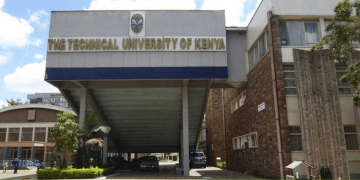Kenyans’ top five priority concerns are anchored in economic hardship and social welfare, with the cost of living, unemployment, Social Health Authority (SHA), corruption, and education costs emerging as the most pressing issues, according to a new Infotrak survey.
The survey conducted between August 13th and 14th, 2025, revealed that the national dialogue is now less about politics and more about household survival, with growing frustration over the perceived failure of social safety nets—particularly healthcare, education, and job creation.
Infotrak, in its release on Wednesday, September 25, stated that policy efforts must be seen as aggressively addressing these core livelihood issues.
According to the survey, the high cost of living emerged as the leading concern at 40 percent, followed closely by unemployment at 36 percent.
Kenyans Rank Cost of Living as Top Crisis, Blame Taxes and Corruption
The high cost of living is a near-universal and worsening reality. About 79% of Kenyans believe it is higher than it was a year ago, while 70% rate it as “High” or “Very High.”
The economic crisis is deeply felt across most households, particularly among older demographics (55+), with 56 % rating the cost of living as very high.
Access to affordable and quality education also featured prominently, with 31 percent of Kenyans listing it among their top concerns.
Challenges around the Social Health Insurance Fund (SHIF/SHA) were highlighted by 27 percent of respondents, while corruption and over taxation were cited by 25% and 20% respectively.
The high ranking of Corruption shows that the public links poor governance and graft directly to the national economic hardships
SHIF/SHA issues and the cost of education ranking signal a growing social welfare crisis, where citizens fear losing access to affordable healthcare and schooling.
Also Read: 55,000 Kenyans Affected as Universities, Counties Fail to Remit Ksh 3.49 Billion (FULL LIST)

Reasons Behind the High Cost of Living
The administration is under increasing pressure to either revise its taxation strategy or dramatically improve the return on taxes through visible, effective public service delivery—countering the growing perception of policy failure.
According to the findings, taxation is perceived as the main cause of the high cost of living in Kenya, with 40% of respondents citing it as the leading factor.
Global economic issues, such as fuel prices and supply chain disruptions, were mentioned by 19%, while government policies followed at 16%.
Corruption was highlighted by 14% of Kenyans, while 6% blamed the situation on a lack of employment opportunities.
A further 2% pointed to poor agricultural productivity, while 3% said they did not know.
Also Read: Why Kenyans Want Raila Back in Opposition to Face Ruto
Regional Variation in Distress
The survey revealed regional variations in public concerns. In the Coast and Nairobi regions, unemployment ranked as the leading issue, while in Central, Rift Valley, and Nyanza, challenges related to the Social Health Insurance Fund (SHIF/SHA) featured most prominently.
According to Infotrak, interventions need to be regionally specific, with dedicated job-creation programs for urban and coastal areas, while the national focus remains on price stabilization and clarity on SHIF implementation.
The high cost of living dominates in all regions, ranging from 36% in Nairobi to 46% in Western Kenya.
Unemployment follows closely, particularly in Nairobi and the Coast, where it reaches a high of 41%, and is slightly lower in the Rift Valley (33%) and Western (32%) regions.
Access to quality and affordable education also ranks high across regions, with Nyanza leading at 34% and the Coast region having the lowest rate at 23%.
SHIF/SHA issues are prevalent in Central, Rift Valley, and Nyanza, at a rate of 30%, with a national average of 27%.
Corruption remains a persistent concern across all regions, highest in Nairobi at 28% and lowest in North Eastern at 19%
Follow our WhatsApp Channel and X Account for real-time news updates.
























































![Senator Allan Chesang And Chanelle Kittony Wed In A Colourful Ceremony [Photos] Trans Nzoia Senator Allan Chesang With Channelle Kittony/Oscar Sudi]( https://thekenyatimescdn-ese7d3e7ghdnbfa9.z01.azurefd.net/prodimages/uploads/2025/11/Trans-Nzoia-Senator-Allan-Chesang-with-Channelle-KittonyOscar-Sudi-360x180.png)




















